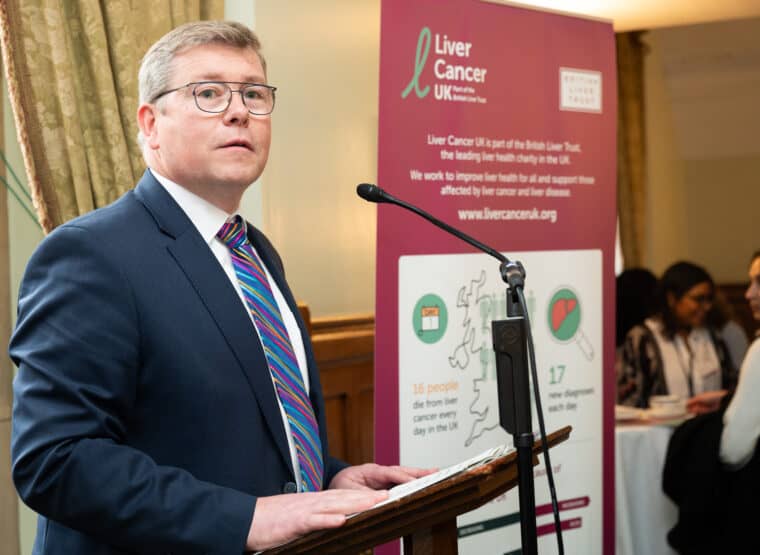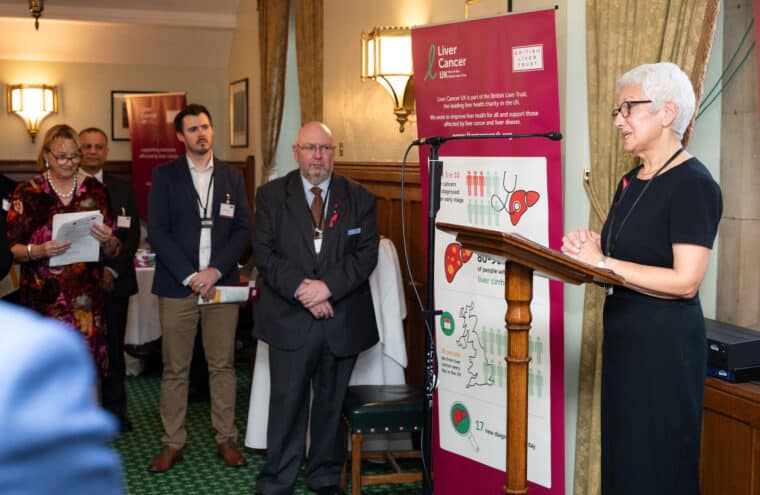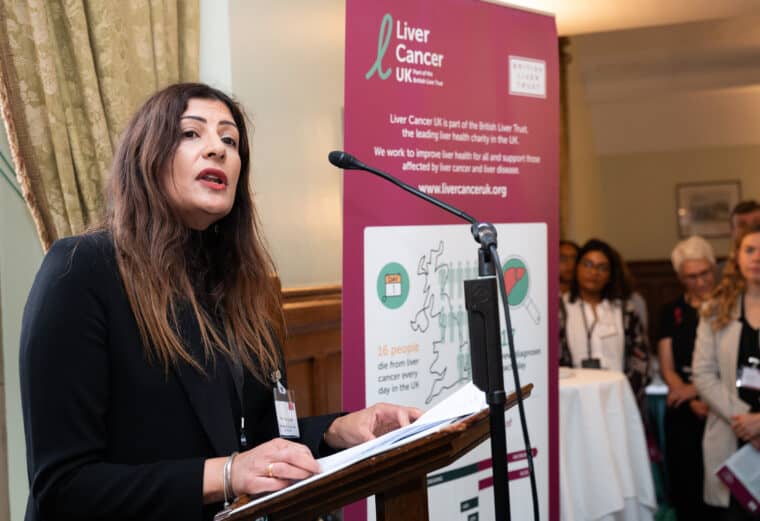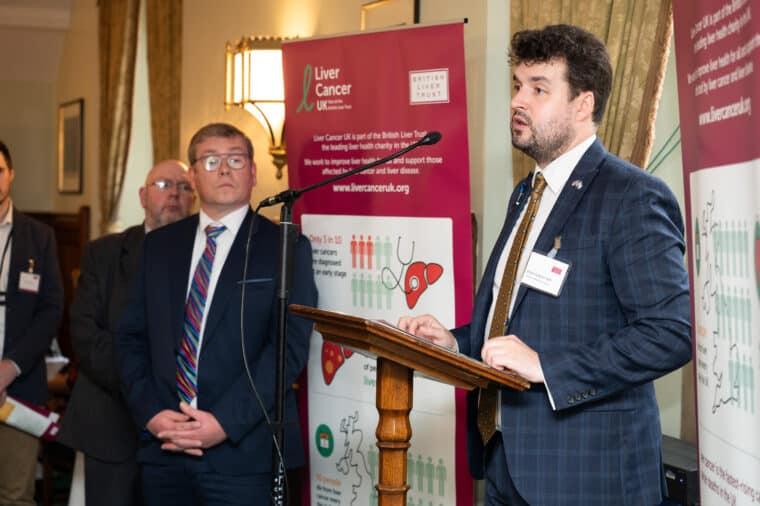On 25th October, we hosted an event at Westminster to launch our report ‘Liver Cancer – A Call to Action’ in Parliament to highlight the need to improve prevention, early diagnosis and patient care – to reverse increasing liver cancer deaths and improve patient outcomes.
The launch was attended by a wide range of stakeholders from the NHS, charity sector, front line clinicians, pharma, civil service and 18 MP and Peers, as well as patient advocates – Monica, Shona and Jim from across the UK.
Amplifying patient voices is central to our work at Westminster. Monica, a liver cancer survivor spoke powerfully of the vital importance of improving earlier diagnosis. She emphasised how lucky she was to have her cancer diagnosed early and to receive a lifesaving transplant, highlighting that tragically only 3 in 10 liver cancer patients are diagnosed early.
Peter Gibson MP opened the event as Vice Chair of the APPG on Liver Disease and Liver Cancer. He shared how his family have been personally impacted by liver cancer and highlighted that more can and must be done to improve survival and outcomes for patients.


Liver cancer develops silently and is too often diagnosed at a late stage. As a consequence, the five-year survival rate is only 13%. Improving prevention, surveillance and early detection of liver cancer is therefore essential to help save lives and close the deadly cancer gap.
Speaking on the recent report launch, Pamela Healy OBE, Chief Executive at the British Liver Trust said, “Liver cancer has one of the lowest survival rates of any cancer in the UK and is also the fastest rising cause of cancer death in the UK. With liver cancer deaths surging by 40% over the last decade, cross-party support for improving survival and outcomes is more important than ever.”
The most significant risk factor for liver cancer is liver disease. Early identification of liver disease allows for the possibility of reversing liver damage through lifestyle modifications, leading to a substantial reduction in the risk of liver cancer. Labour Shadow Minister for Public Health and Primary Care, Preet Kaur Gill MP, said during her speech, “Unhealthy diets are a major driver of chronic disease and preventable deaths. Obesity doubles the risk of developing liver cancer.” She stated that the future Labour Government are committed to a “relentless focus on prevention and improving earlier detection” to help save lives and reduce huge avoidable pressures on our NHS.


Chair of the APPG on Cancer, Elliot Colburn MP spoke about emerging good practice. In addition to spotlighting innovative and minimally invasive cancer therapies, he highlighted the recent step change in improved surveillance of high-risk groups, stating: “NHS England are at the forefront of innovation in promoting earlier detection of liver cancer in the UK with an incredibly promising early detection pilot programme to help transform outcomes for liver cancer patients across the country.”
Mhukti Perumal from NHS England provided more details on the hugely promising NHS liver cancer surveillance pilot programme, reporting that the NHS England Early Detection Liver Cancer Programme has offered “over 26,500 on the spot liver scans in the first year of the pilot scheme. Of which 10% have been found to be at risk of liver cancer and from this already 2,200 people have been put on surveillance.”
The British Liver Trust are calling on all MPs to support scaling up NHSE early detection work and pilots to improve early detection, reduce variation in care, and ultimately save lives.
Prof Stephen Ryder concluded the event by emphasising the vital importance of a “coordinated response” to ensure those at highest risk are placed on effective surveillance, diagnosed earlier with equitable access to innovative treatment across the UK. Outcomes and survival from liver cancer are significantly better when the disease is caught at an early stage, when interventions and lifestyle changes can work.
Follow the link to find out more about how you can support our campaigns to help turn the tide on the liver cancer crisis.
